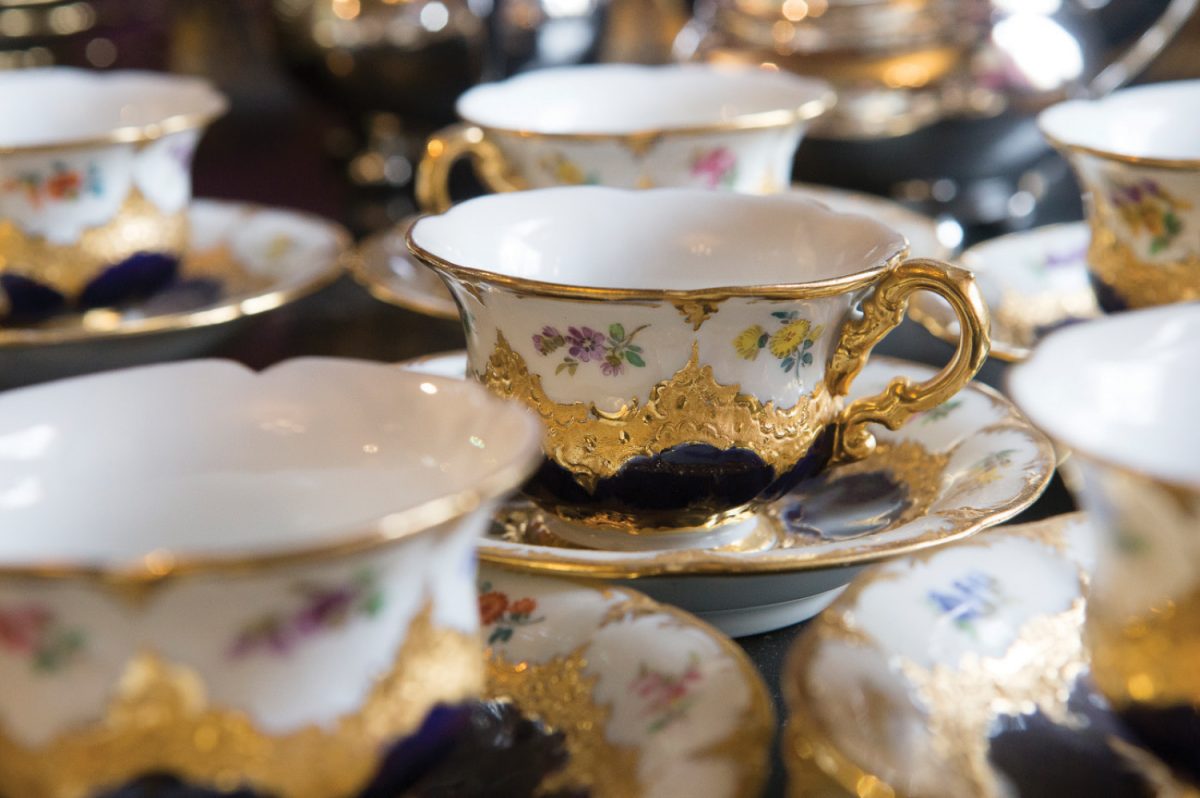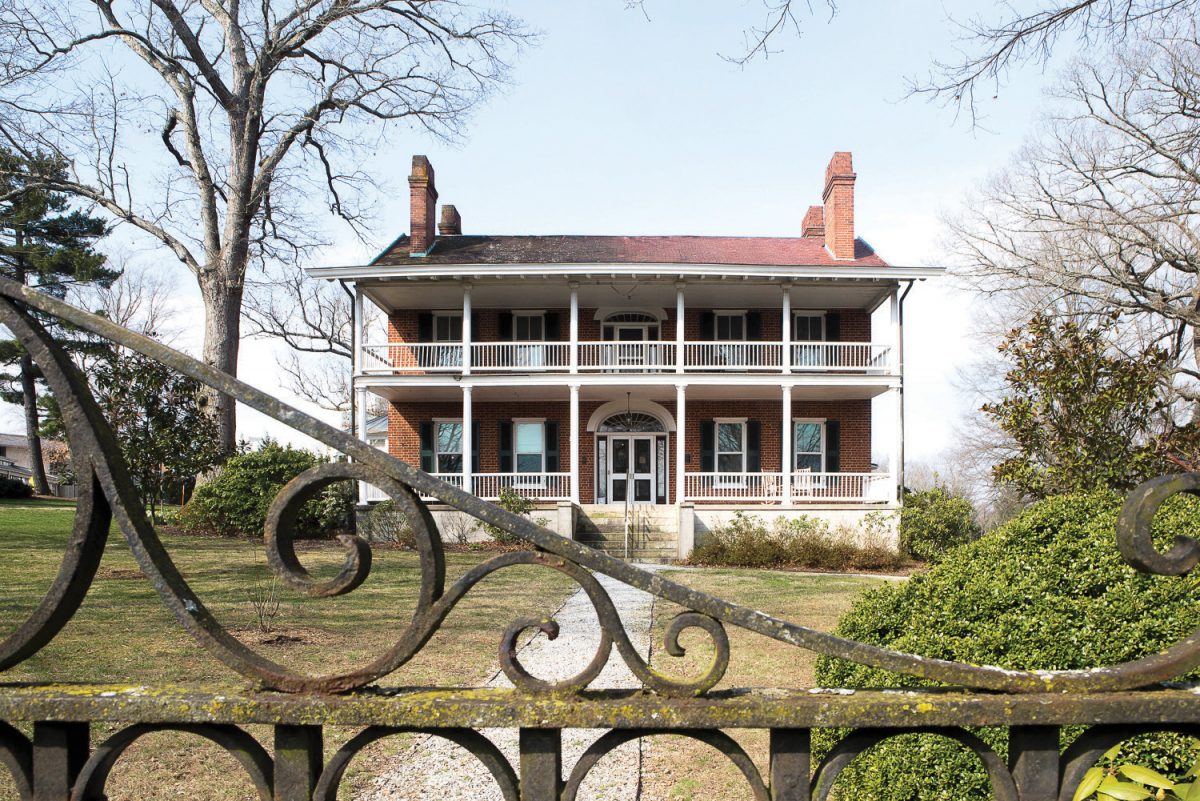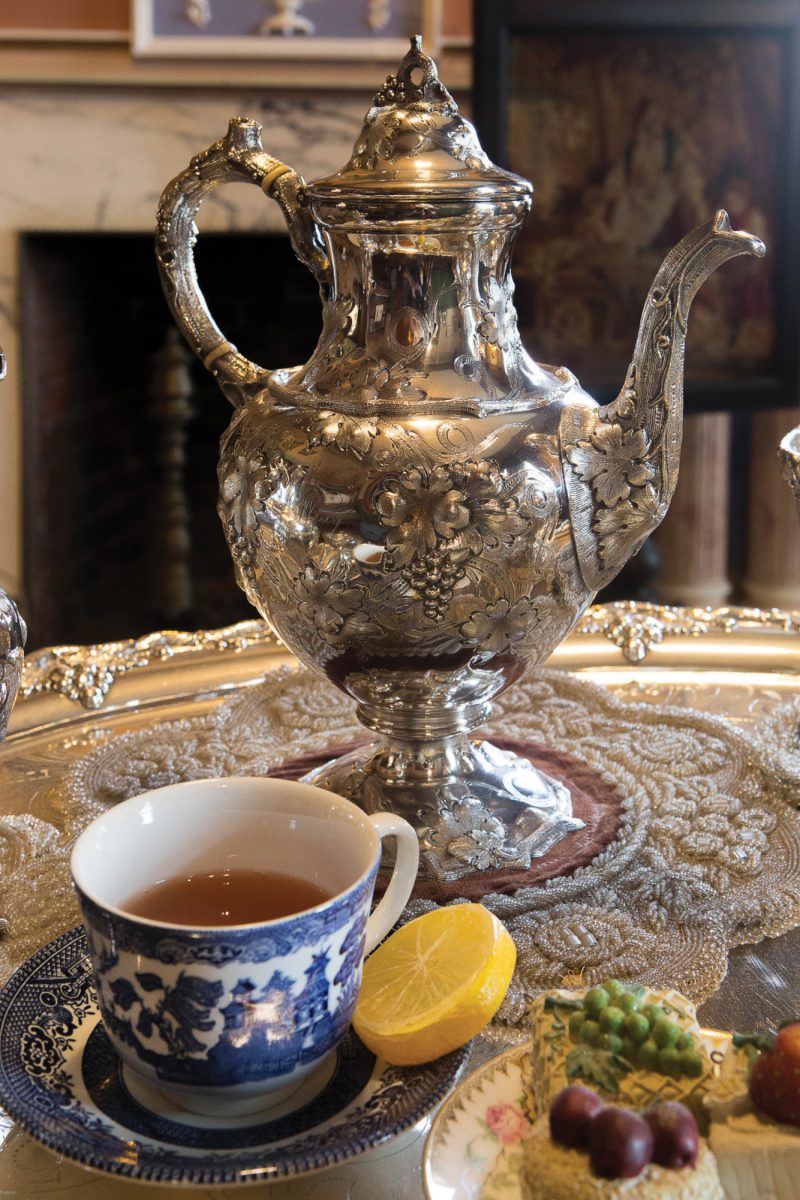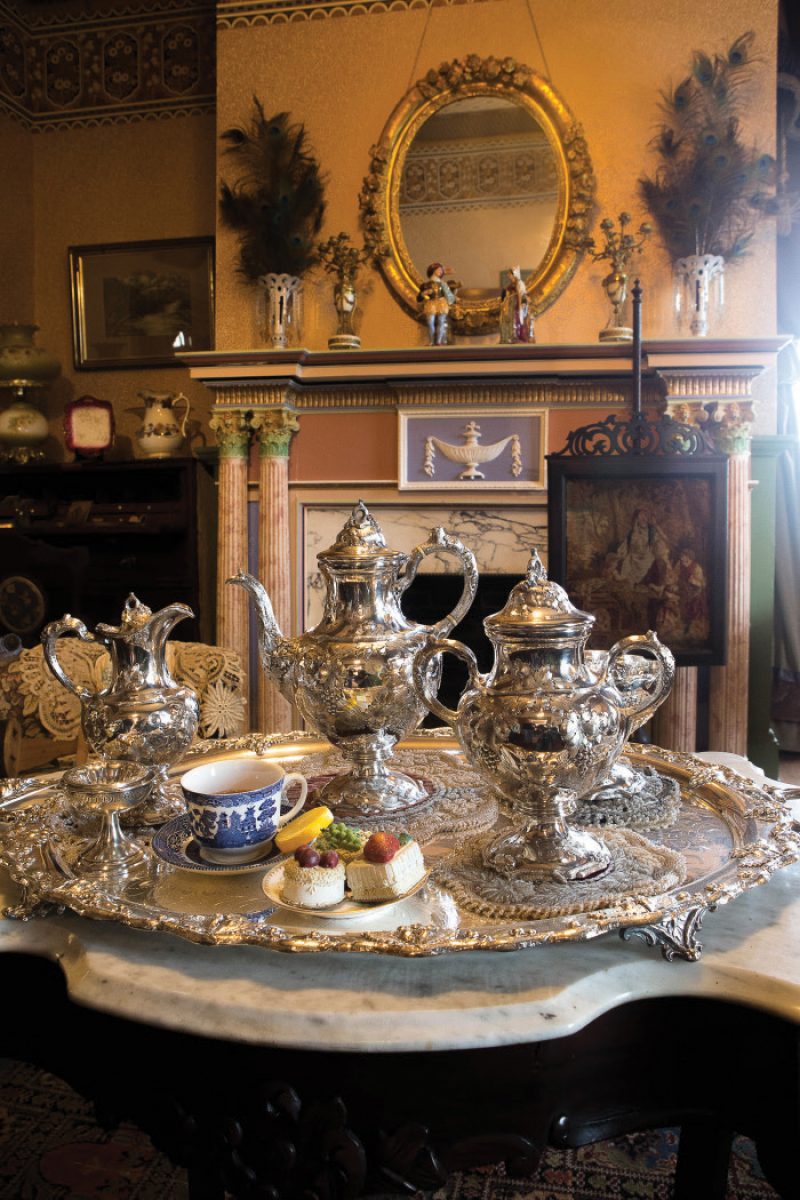
Centuries of turbulent history lurk within. Some of it will be discussed in a season-long exhibit at Smith-McDowell House Museum.
Photo by Matt Rose
Coffee may rule the breakfast table and the workplace, but tea aspires to more contemplative moments in more tranquil surroundings. This spring and summer, the delights of afternoon tea — not to mention the drink’s politically turbulent past — will be enhanced with a few centuries of context, when the multimedia “Infused in History” exhibit opens at the Smith-McDowell House Museum.

The brick house, built in the 1840s, is Asheville’s oldest surviving home and an ideal setting for the scores of tea-related items that will be on display. “Most of the items are drawn from the Smith-McDowell House collection,” says volunteer/tea enthusiast Lynn Karegeannes, who writes a blog called “My Life With Tea.” Others will be donated for the occasion. “We have a child’s Japanese tea set, an unusual Chinese tea pot, and two terrarium-like tea cases that are on loan.”

Early Dutch traders brought Chinese-imported tea with them to America. Throughout most of the 1800s, it was considered a luxury item, and it became a symbol of the type of upper-class family represented by Sarah Smith McDowell — whose parents built the Asheville house — her husband William McDowell, and their nine children. The drink remained out of reach for more modest households until after the Civil War, when tea from Japan, India, and Africa became easily available.
Ancillary events during the exhibit include a lecture by Elmwood Inn Fine Teas owner Bruce Richardson, who’s been hailed as America’s leading expert on the subject. Richardson can tell you which five teas were dumped into Boston Harbor in 1773 and why Jane Austen never served Earl Grey to her guests. His Kentucky-based company, a major sponsor of the Asheville exhibit, is also providing the tea to be served at the end of each exhibit tour.

Other happenings include a Teacup Fairy Garden for children in May and an opportunity to have tea-related antiques or family heirlooms appraised by Asheville’s Brunk Auctions.
“There are few hours in life more agreeable than the hour dedicated to the ceremony known as afternoon tea,” author Henry James, no slouch at tea drinking, famously intoned. According to correspondence, James thought the Biltmore House was too large and drafty for comfort — but he might have been right at home in the relatively cozier, tea-sipping confines of Smith-McDowell.
“Infused In History: A Tea Exhibit” opens April 24, at the Smith-McDowell House Museum (283 Victoria Road, Asheville) and runs through September 28. Visit wnchistory.org for details and more information.
